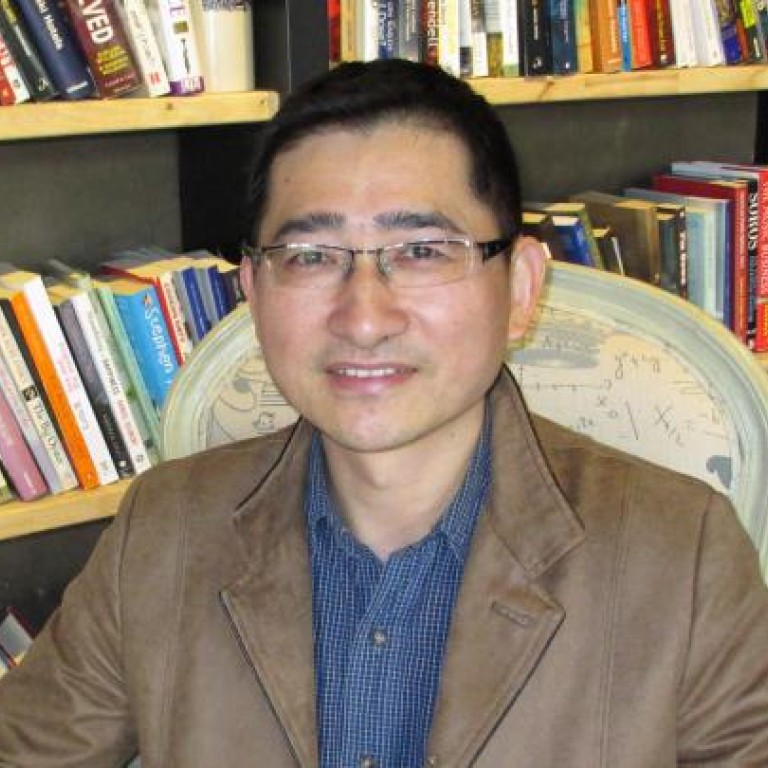
Shanghai's 'Dr Smile' Zhang Qiang goes private for public good
Vascular surgeon who made a radical move to exit the public hospital system hopes to be a model 'pure' doctor and help patients better
Shanghai vascular surgeon Dr Zhang Qiang made headlines by quitting as department head of a public class-A hospital at the end of last year and becoming one of the mainland's few freelance doctors. The 47-year-old, who prefers to call himself Dr Smile, says he wants to be a role model and encourage upright and outstanding doctors to abandon the mainland's "ailing" public health care system and pursue their dreams as "pure" doctors.
A doctor should basically be a freelancer, and practising as a freelancer is common in advanced countries and regions. But mainland China requires that doctors serve only at hospitals to which their practice licence is bound, which is unreasonable. This system bans doctors from operating in other institutions. And few doctors open their own clinics. For two decades I worked at public hospitals in Hangzhou and Shanghai, where non-medical considerations often got in the way of my work and I could not be a pure doctor. Where public hospitals are concerned, whether a doctor is good isn't based on his medical skills or reputation among patients, but on elements including office politics and the number of papers he has published in international journals. I am not that capable of handling complicated office politics, nor am I good at drinking alcohol. As a department head, I had to attend plenty of meetings full of empty talk and prepare for inspections by health authorities. I also did trivial calculations to check if each team in my department met the authorities' requirement of capping patients' drug costs as a percentage of medical bills. It was awful doing all these meaningless activities. I advised young doctors not to prescribe excessive drugs because it was not in their patients' interests. But then they would earn less because of reduced kickbacks from selling drugs. That put me in a painful predicament. What I am interested in is looking for better solutions for patients and serving them better.
I thought of opening a vascular hospital 10 years ago, but it was expensive and there were not many private hospitals. Over the past decade I have been successful in my career. Patients waited for three months to undergo surgery by me, and outpatients woke up before dawn and queued for hours to get a consultation. But it's not what an ideal hospital should be. Why can't patients book medical services easily? Why can't they receive tailor-made treatment? Compared to businesses such as banking and travel, which treat people like gods, patients face countless trouble at public hospitals. Service suffers because doctors are struggling to cope with so many patients that they don't have time to get a drink or visit the toilet.
Not a lot, but I am sure the trend is that more doctors will quit public institutions. Professor-level doctors at Shanghai's major health centres, like me, can earn about 1 million yuan (HK$1.25 million) in legal and "grey" income a year, so they tend to stay where they are to maintain those vested interests. However, some will also hope to chase their dreams, I believe. As for junior and mid-level doctors, they don't get fat payments, but some of them care about the lifelong contract, medical insurance and pension that are part of their employment. I would tell them it's miserable when you are in your 20s or 30s if your only requirement for a job is to provide a stable life. Young people, if they aren't satisfied with the environment of public hospitals, should be prepared to go job hopping, instead of complaining and yet staying on. You achieve more working freelance or for private hospitals.
The Sino-foreign Worldpath Clinic International, which targets upmarket patients, has signed me. It doesn't pay me a fixed salary; instead, my income comes only from the medical services I provide. Drug prescriptions and medical tests do not contribute to my earnings.
There are three reasons why my resignation has drawn wide attention. Firstly, 2012 was the year that saw the worst hospital-patient relationship in history, with many vicious assaults on doctors, including some that were fatal. A few attacks occurred in class-A hospitals and some victims were senior doctors. That was horrific and doctors came to be concerned about their safety. Secondly, doctors wanting to practise at multiple sites are becoming more vocal. Thirdly, as Beijing and Shanghai build international medical centres that will offer services for the elite, it's certain to attract outstanding doctors from public hospitals.
On the one hand I am a modest person and get along well with people. In that respect I am low-key. But on the other hand I don't want to hide my thoughts. I put about six posts a day on my microblog to share my views and inspire people. If that can become a force to advance health reform or help fellow doctors, that will be wonderful. I am confident that those who denounce me will be my followers in the future.
I want to spread the spirit of "smiling at life" - even when you are at a low ebb. In my 30s, I encountered hardships in work and life, but didn't have time to frown. I just carried on with life. After turning 40, I began to ponder philosophical issues, such as why we came into this world and what we should do for it. One of my conclusions was I should encourage others to look at things positively, hence the name Dr Smile.

